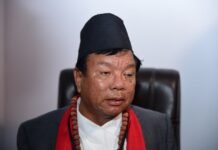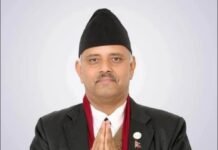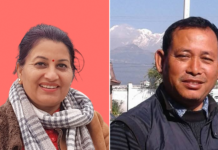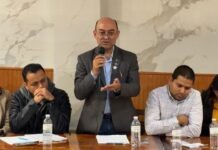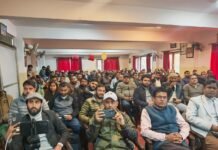Brisbane, Australia – IAS 2023, the 12th IAS Conference on HIV Science, opened with a session highlighting Australia’s extraordinary recent progress on HIV and the need to accelerate action to end the epidemic.
The conference, hosted by IAS – the International AIDS Society – has drawn thousands of experts from across the worlds of science, policy and activism to Brisbane to examine the latest advances in HIV research and forge a more equitable and innovative HIV response. The conference is taking place at the Brisbane Convention & Exhibition Centre and virtually until 26 July.
“This is an incredibly exciting time in HIV research, and the studies at IAS 2023 reflect that,” Sharon Lewin, IAS President, IAS 2023 International Chair and Director of the Peter Doherty Institute for Infection and Immunity at the University of Melbourne in Australia, said. “The science presented at this conference will guide rollout of game-changing prevention tools like long-acting PrEP, shed light on how to reduce the impact of mpox and COVID-19 on people living with HIV, and identify new approaches to achieve an HIV cure.”
 Ahead of the conference, researchers released updated estimates documenting Australia’s remarkable progress in reducing new HIV acquisitions.
Ahead of the conference, researchers released updated estimates documenting Australia’s remarkable progress in reducing new HIV acquisitions.
“We are now on the brink of achieving a monumental milestone – the elimination of HIV in Australia,” Charles Gilks, IAS 2023 Local Chair and Queensland Professorial Chair of BBVs and STIs at the University of Queensland, Australia, said. “To become the first country to do so and attain the Sustainable Development Goals for 2030, we must intensify our efforts to reach marginalized communities and address health disparities, prioritize sexual health education and continue our investments in research and innovation.”
“Australia is delighted to host this important and influential conference as part of our ongoing commitment to the international fight against HIV and AIDS,” Mark Butler, Minister for Health and Aged Care in Australia, said. “Through bipartisan collaboration and support, coupled with the global efforts of science and research, we will one day be able to eliminate HIV transmission. The contribution that people with lived experience and those with professional experience will bring to this conference will be critical in driving progress toward that goal.”
Leaders gathered for the opening session also discussed the global implications of progress in Australia.
“The fact that we are now talking about elimination of HIV transmission in any country is incredible; it shows what is possible and gives us hope,” Tedros Adhanom Ghebreyesus, WHO Director-General, said. “Australia’s success tells us we have the science, the tools and the know-how to stop infections and save lives. The challenge we all face now is replicating that success around the world, especially in the poorest, most marginalised, and hardest to reach communities.”
The conference will also shine a spotlight on other nations across Asia and the Pacific and will feature diverse voices from across the region.
“While the path to ending AIDS is clear, we are still struggling to bridge the gaps between scientific advancements, medical interventions and leading experts – with communities that need them the most,” Alegra Wolter, a trans physician and the Advisory Board Chair for Suara Kita, an NGO dedicated to promoting the rights of LGBTIQ+ individuals in Indonesia, said. “This conference offers an opportunity to shift our global perspective from charity and tokenistic point of view, turning it into a meaningful engagement of those most affected by HIV.”
IAS 2023 will close with a virtual panel discussion on leadership, communication and science featuring Anthony Fauci, former Director of the National Institute of Allergy and Infectious Diseases at the U.S. National Institutes of Health. Panellists will discuss lessons learnt from COVID-19 that can be applied to the global HIV response.
“We must continue to push back against disinformation and stigmatization because disinformation really hampered the response to COVID, and in certain circumstances, has hindered our response to HIV,” Fauci said in pre-recorded remarks. “We have to push back on disinformation and stigmatization because they both are clearly the enemies of public health.”


